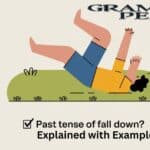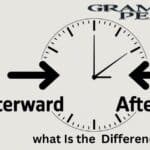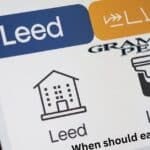We tend to get confused how to differentiate “Skill-Set,” “Skillset,” and “Skill Set.” They all mean a collection of skills that a person owns. But their application might vary.
In this piece, we will dwell on each word exhaustively. We will examine their meanings, historical application, and collocations. This will equip you to apply them properly when writing professionally as well as in business correspondence.
Why is There Confusion?
The root of confusion often lies in the inherent ambiguity of language. Terms like “Skill-Set,” “Skillset,” and “Skill Set” can all express the same idea, but their usage varies among individuals. Different interpretations based on personal experiences and understandings often lead to a lack of clarity.
The primary cause of this confusion can be traced back to the natural ambiguity and fluidity of language, which is accentuated by the absence of universally acknowledged norms for certain terms.Cultural and geographical diversities further contribute to this confusion. The same term can be used differently in various regions or cultures, leading to divergent interpretations. For instance, “Skillset” as a single word is more common in American English,
whereas “Skill Set” as two words is more prevalent in British English. These regional and cultural differences in language usage add another layer of complexity and potential confusion, especially in a global context where cross-cultural communication is the norm. The swift progression of technology also plays a significant role in nurturing confusion. The digital era has accelerated the evolution of language, introducing new terms and abbreviations at an unprecedented speed. People’s acceptance and understanding of these new terms can vary greatly.
Explore These “Skill-Set,” “Skillset,” or “Skill Set”: Which is Right?
What is a “Skillset”?
A skillset refers to a specific set of skills that a person possesses. This can include technical skills, soft skills, and other competencies and proficiencies. For example, a graphic designer may have a skillset that includes proficiency in Adobe Photoshop and creativity in design.
Using the term skillset is common in modern workplaces. It is often used in job descriptions to highlight the abilities required for a position. People often use skillset as a buzzword in conversations. It sounds trendy and modern, making it appealing in professional communication.
What is a “Skill Set”?
Skill Set is the traditional way to refer to a collection of skills. It is used in both professional and academic contexts. When you say someone has a skill set, you are talking about their specific abilities and knowledge.
Many people still use skill set in resumes and job postings. It is a straightforward way to present abilities to potential employers. The clarity of this term helps ensure that the message is understood.
Must Be Read “Skill-Set,” “Skillset,” or “Skill Set”: Which is Right?
“Skillset” vs. “Skill Set”: The Differences and the Correct Usage
The main difference between “skillset” and “skill set” is the formatting. Skillset is a closed compound noun, while skill set is an open compound noun. Using the correct form depends on the context.
In professional writing, you might choose to use skill set for clarity. It is often recommended by grammar and style guides like the Chicago Manual of Style. On the other hand, skillset is more common in casual conversation and less formal contexts.
Here’s a table outlining the differences and correct usage of “Skillset” vs. “Skill Set”:
| Aspect | Skillset | Skill Set |
| Definition | A modern compound term for a collection of skills. | A traditional term referring to a group of skills or abilities. |
| Usage | Commonly used in casual and contemporary contexts. | Preferred in formal and professional writing. |
| Hyphenation | Do not use a hyphen. | Can be hyphenated as a skill-set in some contexts. |
| Acceptance | Increasingly recognized in informal communication. | Widely accepted in dictionaries and professional standards. |
| Context | Often used in tech and modern industries. | Used across various fields, especially in job descriptions. |
| Consistency | May lead to an informal tone if overused. | Provides clarity and professionalism in writing. |
What About “Skill-Set” (Hyphenated)?
The term “skill-set” is a hyphenated version of the two words. Historically, this form was more common.
This change reflects the evolution of the English language and how we use compound nouns.
- Compound Rules and Hyphenated: Understanding the rules of compound nouns is essential in writing. Hyphenated compounds, such as skill-set, are formed by joining two or more words with a hyphen, which can clarify meaning in certain contexts.
- Dictionary Standards: Most reputable dictionaries guide the correct usage of terms like skill set, skillset, and skill-set. They help users understand the variations and when to apply each form.
- Correct Usage: Correct usage of these terms is crucial for effective communication. While skill set is widely accepted in formal contexts, using skillset in casual discussions may convey a modern tone.
- Consistency in Professional Writing: Maintaining consistency in professional writing is vital. Adhering to a specific form, whether it be skill set or skillset, ensures clarity and helps convey professionalism to the audience.
Here’s a table focusing on the hyphenated term “Skill-Set”:
| Aspect | Skill-Set |
| Definition | A group of skills or abilities, denoted with a hyphen. |
| Usage | Less common, but can be used to clarify meaning in complex sentences. |
| Hyphenation | Uses a hyphen between the words “skill” and “set”. |
| Acceptance | Generally accepted when used to avoid ambiguity. |
| Context | Can be used in both formal and casual contexts. |
| Consistency | Provides clarity when used appropriately, but may lead to confusion if overused. |
Historical Usage of “Skill Set” and “Skillset”
The terms “skill set” and “skillset” have different histories. Skill set has been around longer as a term for abilities. It has strong roots in professional writing and is widely accepted. On the other hand, skillset gained popularity more recently.
It reflects the trend of forming new words by combining existing ones. This change is part of the English language evolution. As a result, you may find both terms used in various contexts. Understanding their histories helps clarify why they exist and how they are perceived today.
Regional Differences in Usage
Regional differences play a role in the usage of “skillset,” “skill-set,” and “skill set.” In some areas of the USA, people may prefer one term over the others. For instance, skill set may be more common in formal writing, while skillset is frequently used in casual discussions.
Different regions may also have varying preferences for compound nouns. This can affect how people perceive and use these terms.Understanding these regional preferences in English can help you communicate more effectively. It can also aid in making your writing more relatable to your audience.
Grammar and Style Guides on “Skill Set”
Grammar and style guides provide clear recommendations for using “skill set.” For instance, the AP Stylebook suggests using skill set for clarity and consistency.
The Chicago Manual of Style also supports this recommendation. These guides help ensure that your writing adheres to standard English usage. This is especially important in professional communication.
By following these guidelines, you can avoid confusion with your audience. This is crucial, especially in formal writing like reports, articles, or business emails.
Public Perception and Trends
Public perception of “skillset” and “skill set” is evolving. People often associate skillset with modern workplaces and contemporary job skills. It feels more dynamic compared to the more traditional skill set.
A recent Google Trends analysis showed a rise in searches for skillset. This indicates a growing acceptance of the term in various contexts. However, skill set remains widely respected and used.
Understanding public perception can help you choose the right term for different situations. Depending on your audience, you may opt for the more modern skillset or the traditional skill set.
Examples in Context
When using “skillset,” “skill set,” or “skill-set,” examples can clarify their meanings. In a job description, you might see, “We are looking for a candidate with a diverse skill set.” This usage is clear and direct.
Here are 12 sentences using the“skill set,” “skillset,” and “skill-set” in context:
- The job posting specified that applicants should have a solid skill set in data analysis.
- His unique skillset includes both technical expertise and creative problem-solving abilities.
- Employers often prefer candidates with a well-defined skill set to ensure they meet job requirements.
- Her skillset was a perfect match for the innovative project we were launching.
- It’s essential to highlight your skill set in your resume to attract the right attention.
- The team members collaborated to develop a comprehensive skillset that covered all necessary areas.
- In today’s job market, having a diverse skill set can set you apart from other candidates.
- We evaluated each applicant’s skillset during the interview process to find the best fit.
- The workshop focused on enhancing participants‘ skill set to improve their performance.
- His skillset includes proficiency in multiple programming languages and effective communication skills.
- While the term skill set is widely accepted, some prefer to use skillset for a modern touch.
- The company values employees with a strong skill-set, as it contributes to overall success.
Synonyms and Related Terms
It is essential to know synonyms of skill set and skillset. Terms like competencies and proficiencies can often be used interchangeably. Each term highlights different aspects of abilities.
Here are 12 sentences using the “skill set,” “skillset,” and “skill-set” along with synonyms and related terms in context:
- A well-rounded skill set is essential for success in the fast-paced tech industry.
- Her diverse skillset includes leadership, strategic planning, and excellent communication skills.
- Candidates with strong competencies are often more appealing to potential employers than those with a basic skill set.
- The training program is designed to enhance participants’ proficiencies and expand their skillset.
- A clear skill set can help job seekers effectively communicate their qualifications on a resume.
- Many organizations are now looking for individuals with a versatile skillset to adapt to changing business needs.
- Understanding your abilities and how they contribute to your overall skill set is crucial for career growth.
- Employers frequently assess a candidate’s skill set during the hiring process to ensure they fit the role.
- His skillset in digital marketing encompasses SEO, content creation, and social media management.
- The emphasis on proficiencies in the job description highlights the importance of a specialized skill set.
- In addition to a robust skillset, soft skills like teamwork and adaptability are highly valued in today’s workforce.
- Developing a comprehensive skill set can greatly enhance your career prospects in any field.
FAQ” S
What is the correct term: skillset or skill set?
The correct term depends on context. Skill set is often preferred in formal writing, while skillset is more casual.
Is skill-set acceptable to use?
Yes, but it is less common today. Most prefer skill set or skillset for clarity.
What are synonyms for skill set?
Synonyms include competencies, abilities, and proficiencies.
Should I use skill set in my resume?
Yes, skill set is clear and professional for resumes and job applications.
What do style guides say about these terms?
Most style guides recommend using skill set for consistency and
Conclusion
Understanding the differences between “skill set,” “skillset,” and “skill-set” is essential for effective communication in both professional and casual contexts. While skill set remains the traditional and widely accepted term, skillset has gained popularity in modern language. It is important to choose the right term based on your audience and the formality of the situation. By using these terms correctly, you can enhance your professional writing and ensure clarity in your communication, ultimately making a positive impression in various settings.

Mason Blake is an experienced blogger with a passion for language and communication. With years of expertise in crafting informative and engaging content, Mason shares valuable insights on grammar and writing. His clear, concise, and reader-friendly approach has earned him a loyal following, helping readers sharpen their language skills and master the art of effective communication.








Thank you for your sharing. I am worried that I lack creative ideas. It is your article that makes me full of hope. Thank you. But, I have a question, can you help me?
Your point of view caught my eye and was very interesting. Thanks. I have a question for you. https://www.binance.com/pt-BR/register?ref=YY80CKRN
Can you be more specific about the content of your article? After reading it, I still have some doubts. Hope you can help me.
I don’t think the title of your article matches the content lol. Just kidding, mainly because I had some doubts after reading the article.
Your point of view caught my eye and was very interesting. Thanks. I have a question for you.
Thanks for sharing. I read many of your blog posts, cool, your blog is very good.
Your enticle helped me a lot, is there any more related content? Thanks!
Your article helped me a lot, is there any more related content? Thanks! https://accounts.binance.info/en-IN/register?ref=UM6SMJM3
Thanks for sharing. I read many of your blog posts, cool, your blog is very good.
Thanks for sharing. I read many of your blog posts, cool, your blog is very good.
Such a simple yet powerful message. Thanks for this.
Such a refreshing take on a common topic.
Your content always adds value to my day.
Your advice is exactly what I needed right now.
Your passion for the topic really shines through.
Thank you for offering such practical guidance.
I appreciate the depth and clarity of this post.
This content is gold. Thank you so much!
This made me rethink some of my assumptions. Really valuable post.
I love the clarity in your writing.
You made some excellent points here. Well done!
This was a very informative post. I appreciate the time you took to write it.
Thank you for sharing this! I really enjoyed reading your perspective.
I feel more confident tackling this now, thanks to you.
I’ll be sharing this with a few friends.
I wasn’t expecting to learn so much from this post!
Your thoughts are always so well-organized and presented.
Your writing always inspires me to learn more.
I’m definitely going to apply what I’ve learned here.
Very useful tips! I’m excited to implement them soon.
Great post! I’m going to share this with a friend.
Great post! I’m going to share this with a friend.
What an engaging read! You kept me hooked from start to finish.
Thank you for putting this in a way that anyone can understand.
I never thought about it that way before. Great insight!
I’ve read similar posts, but yours stood out for its clarity.
This is exactly the kind of content I’ve been searching for.
I hadn’t considered this angle before. It’s refreshing!
Such a simple yet powerful message. Thanks for this.
I don’t think the title of your article matches the content lol. Just kidding, mainly because I had some doubts after reading the article.
I don’t think the title of your article matches the content lol. Just kidding, mainly because I had some doubts after reading the article.
I don’t think the title of your article matches the content lol. Just kidding, mainly because I had some doubts after reading the article.
Thanks for sharing. I read many of your blog posts, cool, your blog is very good.